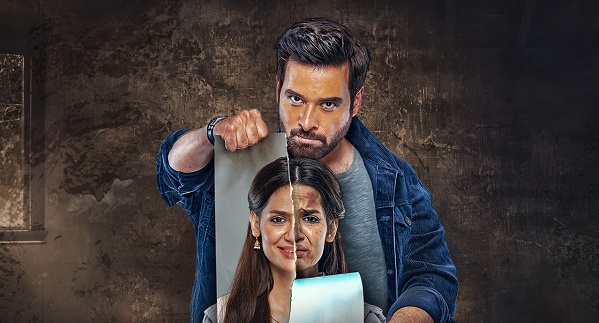Starring Madiha Imam and Mikaal Zulfiqar in lead roles, “Chauraha” immediately raised doubts when its promos went on air, leaving viewers wondering whether this catfishing and kidnapping storyline would ultimately take on a romantic angle between the abuser and his victim. “Chauraha” has been written by Edison Idrees Masih and directed by Aehsun Talish and this team inspires confidence that the narrative will not take a wrong turn. Edison Idrees has a history of writing characters with a strong emotional connect to the audience while Aehsun Talish recently handled Mustajab’s redemption arc in “Aye Musht E Khaak” with a sincere believability. However, with 17 episodes down, it is now becoming apparent that a romantic angle is potentially in the cards – and if that’s the case, what is the perception of the story at this juncture? “Chauraha” also stars Saba Hameed, Behroze Sabzwari and Asad Siddiqui in prominent roles.
In episode 17, Zoya (Madiha Imam) and Junaid (Mikaal Zulfiqar) now find themselves living in the same household after their parents get married. While this is a shock for Zoya, it also comes as a shock to Junaid, who had begun to harbor dreams of marrying Zoya. Credit must be given to how Zoya’s character has been written – and Madiha Imam’s performance. Zoya is now aware that the man who destroyed her life now lives under the same roof as her. In other shows, we may have seen a character like this locking herself up in her room, destroying her image in front of her new stepfather and causing panic for her newly married mother. Zoya does not do this. She does create distance between herself and Junaid, but she also recognizes how sticky this situation has become and realizes that she does not want to harm Shireen’s newly found happiness. But where does this leave Zoya? She unfortunately continues to battle the image her abduction has left her with, Saleem refusing to let her work due to her “reputation.”
Shireen (Saba Hameed) is also learning how to live with a man again and this is seen in her argument with Saleem (Behroze Sabzwari). It’s refreshing to see a scene like this in a drama, a scene that shows how getting married at an older age also means the coming together of two independent-minded individuals who have grown accustomed to living by their own rules. Hearing Saleem’s thoughts on working women ruffles Shireen’s feathers and one can see her thought process, silently wondering if she truly did what was in Zoya’s best interest by getting married. However, after a conversation with Saleem, she can see that he is coming from a place of care and concern, applying the same rules to Zoya that he has for his own daughter. It’s great when dramas depict the reality of marriage and how it is, essentially two people creating room in their lives for the other – and there’s a fair amount of friction initially involved.
Asad Siddiqui’s Arsal is also consistently seen trying to convince his manipulative, gossipy mother into allowing him to marry Zoya – which is, of course, unheard of in her book. This is the woman who had Shireen and Zoya thrown out of their home knowingly just to get them away from her son, so Arsal is simply being a dreamer at this point. It’s great to see how Arsal supports Zoya and Shireen and defends them at every turn, but his involvement in their life will never produce anything positive nor is he strong enough to denounce his mother and leave his home. Could Zoya ever even entertain the idea of marrying Arsal considering those circumstances? This angle feels like a waste of time, as likable as Arsal is.
At the current point in the show, the storyline has begun to feel unethical if it’s moving towards a romance between Junaid and Zoya. And yet, the way Junaid has been written, his grief is believable. He has been trying to reform, particularly after the attack on his sister and meeting his ex-victim. This is a man who is sorry for his actions and while he still has a bit of arrogance in him, he is no longer that conceited, self-absorbed, dangerous, unempathetic man he once was. Junaid is being eaten alive by guilt, his discomfort with himself taking over his personality. Is it possible to excuse Junaid’s criminal behavior? That’s not clear just yet, but Mikaal Zulfiqar’s performance is the strongest reason to watch this show. He has not portrayed a character like this on-screen before, so it has been wonderful watching him tap into a different aspect of his talent and take on this complex role. Is “Chauraha” a must watch? Not necessarily, but it certainly has some good aspects, namely the performances.
